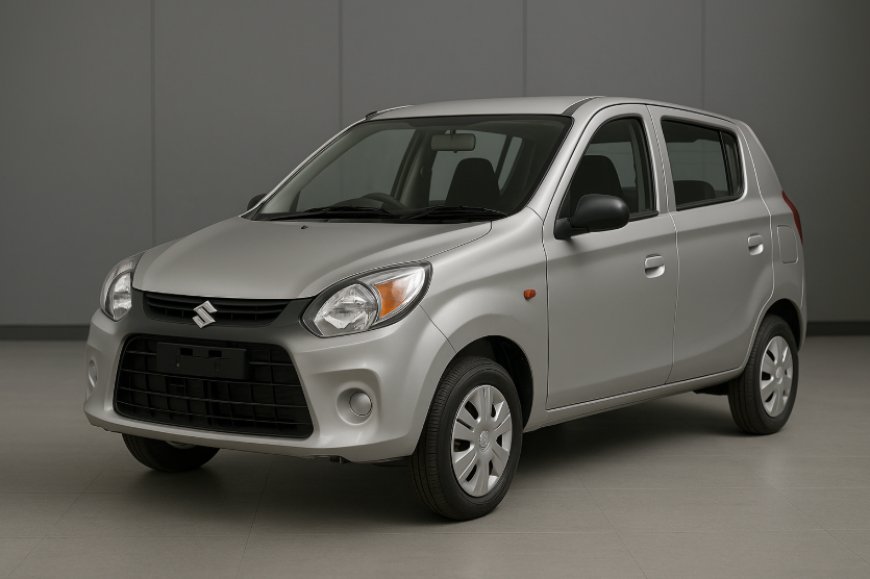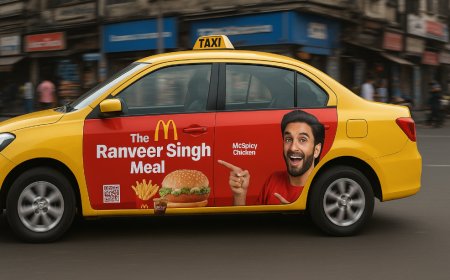Why Entry-Level Cars Are No Longer Affordable for Most Indians: Maruti Suzuki Chairman Speaks Out
Maruti Suzuki’s chairman has raised concerns about the rising cost of small cars in India, warning that the dream of owning a four-wheeler is slipping out of reach for many middle-class families. What does this mean for India’s automotive future?

Introduction: The Shrinking Dream of Car Ownership
India has long been known as a market where entry-level cars made personal mobility accessible to millions. However, according to RC Bhargava, Chairman of Maruti Suzuki India, that accessibility is now under threat. He recently stated that most entry-level cars have become too expensive for the average Indian buyer.
As the prices of compact cars rise due to regulatory, input cost, and inflationary pressures, the once-thriving segment of budget-friendly vehicles is losing its relevance — a shift that could reshape India's auto market for years to come.
What Are Entry-Level Cars and Why Do They Matter?
Entry-level cars, such as the Maruti Alto, Hyundai Eon (discontinued), or Renault Kwid, have traditionally been the first vehicle for many Indian families. Priced affordably, these small hatchbacks offered basic features and fuel efficiency — a perfect combination for new car buyers.
However, Bhargava pointed out that prices have steadily increased over the past decade, primarily due to:
-
Stringent safety and emission norms
-
Higher raw material costs
-
Technological upgrades
-
Increased taxation
These factors have pushed small car prices far beyond what many lower- and middle-income families can afford.
The Impact of Rising Prices on Buyers
With fewer options under the ₹5 lakh mark, prospective buyers are left with limited or no choices. For many households, two-wheelers have become the only viable option for personal mobility.
Additionally, even those who want to upgrade from a two-wheeler to a car are holding back, citing loan rejections, high interest rates, and increased down payments as barriers.
Bhargava noted that this affordability crisis is not just a problem for carmakers but also a setback for broader economic mobility. Car ownership is often associated with upward economic progress, especially in rural and semi-urban India.
Industry Data Reflects the Shift
Recent sales data indicates a decline in small car sales and a shift in consumer demand towards compact SUVs and mid-size sedans — segments that offer more features but also come with higher price tags.
Meanwhile, the entry-level segment has seen:
-
Reduced model availability
-
Declining production
-
Minimal product updates
Maruti Suzuki itself has phased out some models and is now focusing more on premium offerings, despite its historic dominance in the affordable car space.
What Can Be Done to Make Cars Affordable Again?
Bhargava emphasized the need for policy support and industry innovation to bring costs down. Possible solutions include:
-
Lowering GST rates on small cars
-
Revisiting safety/emission norms with affordability in mind
-
Subsidies or incentives for first-time buyers
-
Promoting small electric vehicles (EVs) as an alternative
Automakers are also exploring cost-cutting through localization of components and shared platforms, though these alone may not offset the broader cost pressures.
The Future of Small Cars in India
The Maruti Suzuki chairman’s statement acts as both a warning and a call to action. Unless the government, manufacturers, and financiers work together to tackle affordability, India risks losing an entire segment that once fueled its mobility revolution.
For millions of Indians, a car is more than just transport — it's a symbol of achievement, safety, and freedom. Ensuring that dream remains within reach is essential not just for the auto industry but for India’s aspirations as a growing economy.
Conclusion: A Wake-Up Call for the Auto Industry
As India moves toward electric mobility and high-tech automotive solutions, it cannot afford to neglect the entry-level car buyer — the foundation on which the country’s automobile success was built.
What's Your Reaction?
 Like
0
Like
0
 Dislike
0
Dislike
0
 Love
0
Love
0
 Funny
0
Funny
0
 Angry
0
Angry
0
 Sad
0
Sad
0
 Wow
0
Wow
0












































